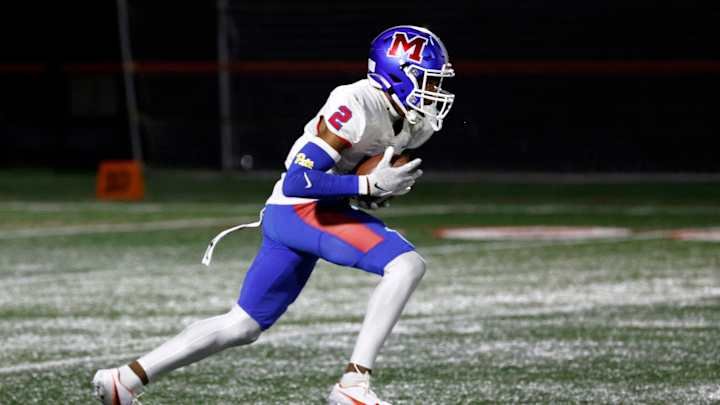In a dramatic twist that underscores the unpredictability of college football recruiting, the Oregon Ducks have successfully landed a commitment from a coveted 4-star wide receiver, dealing a blow to the Miami Hurricanes. The announcement sent shockwaves through the recruiting landscape, highlighting the fierce competition among top programs vying for elite talent.
The prospect in question, widely regarded as one of the most dynamic playmakers in his class, had been a prime target for the Hurricanes. His decision to head to Oregon signals a shift in momentum and raises critical questions about the Hurricanes’ recruiting strategy. For Miami, this development is both a challenge and an opportunity to recalibrate their approach and reinforce their commitment to building a powerhouse program.
The Prospect’s Appeal
Hailing from a high school powerhouse, the wide receiver has consistently showcased exceptional skills on the field. With lightning-fast speed, precise route running, and an innate ability to make clutch plays, he earned the attention of scouts and top programs nationwide. His versatility and potential to make an immediate impact made him a prized recruit.
Throughout his recruitment process, the athlete had expressed interest in both Miami and Oregon, keeping fans and analysts guessing about his eventual destination. The Hurricanes were optimistic about their chances, given their recent push to revitalize their program under new leadership. However, Oregon’s reputation for innovative offenses and a strong track record in player development proved too enticing to resist.
Why Oregon?
Oregon’s ability to secure the commitment is a testament to their strategic recruiting efforts. The Ducks have built a brand synonymous with speed, creativity, and success on the national stage. Their state-of-the-art facilities, vibrant team culture, and high-profile head coach all contributed to making Oregon an appealing choice.
In his commitment announcement, the receiver cited Oregon’s vision for his future and the opportunity to be part of a dynamic offensive system as key factors in his decision. “Oregon felt like home,” he said. “They showed me how I could thrive both on and off the field.”
What It Means for Miami
For the Hurricanes, this setback is a reminder of the competitive nature of recruiting at the highest level. Despite the loss, Miami remains an attractive destination for top talent, boasting a storied history and a passionate fan base. To bounce back, the Hurricanes will need to double down on their efforts to connect with recruits, emphasizing their vision for the future and the unique advantages of playing in Miami.
The loss also underscores the importance of building momentum on the field. Success in the upcoming season could serve as a powerful recruiting tool, demonstrating that Miami is a program on the rise. Additionally, the Hurricanes will need to leverage their extensive alumni network and the allure of Miami’s vibrant culture to remain competitive in the recruiting wars.
The Bigger Picture
While missing out on a player of this caliber is undoubtedly a disappointment, it’s important to remember that recruiting is a marathon, not a sprint. The Hurricanes’ coaching staff has already proven adept at identifying and developing talent, and there are still plenty of opportunities to secure game-changing players in the current cycle.
As for the Ducks, this commitment is another feather in their cap, solidifying their status as one of the nation’s top recruiting programs. It also serves as a reminder that Oregon is a force to be reckoned with, capable of competing with traditional powerhouses for the best talent.
In the end, this high-profile recruitment battle serves as a microcosm of the broader dynamics shaping college football today. For Miami and Oregon, it’s not just about one player—it’s about building a program capable of sustained success. Only time will tell which
approach will ultimately prevail, but one thing is certain: the race for talent is far from over.

